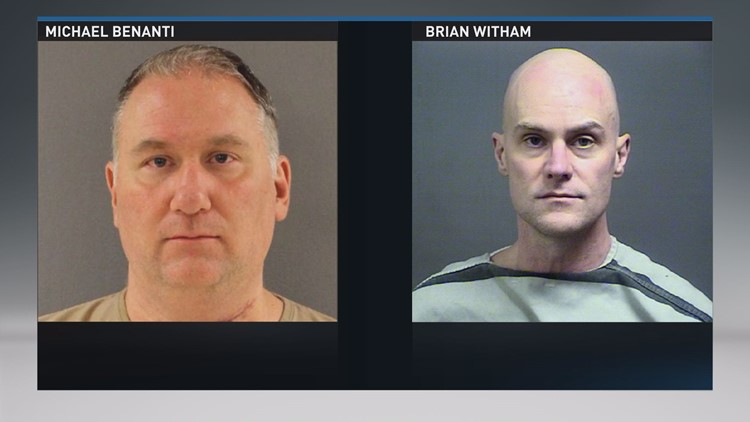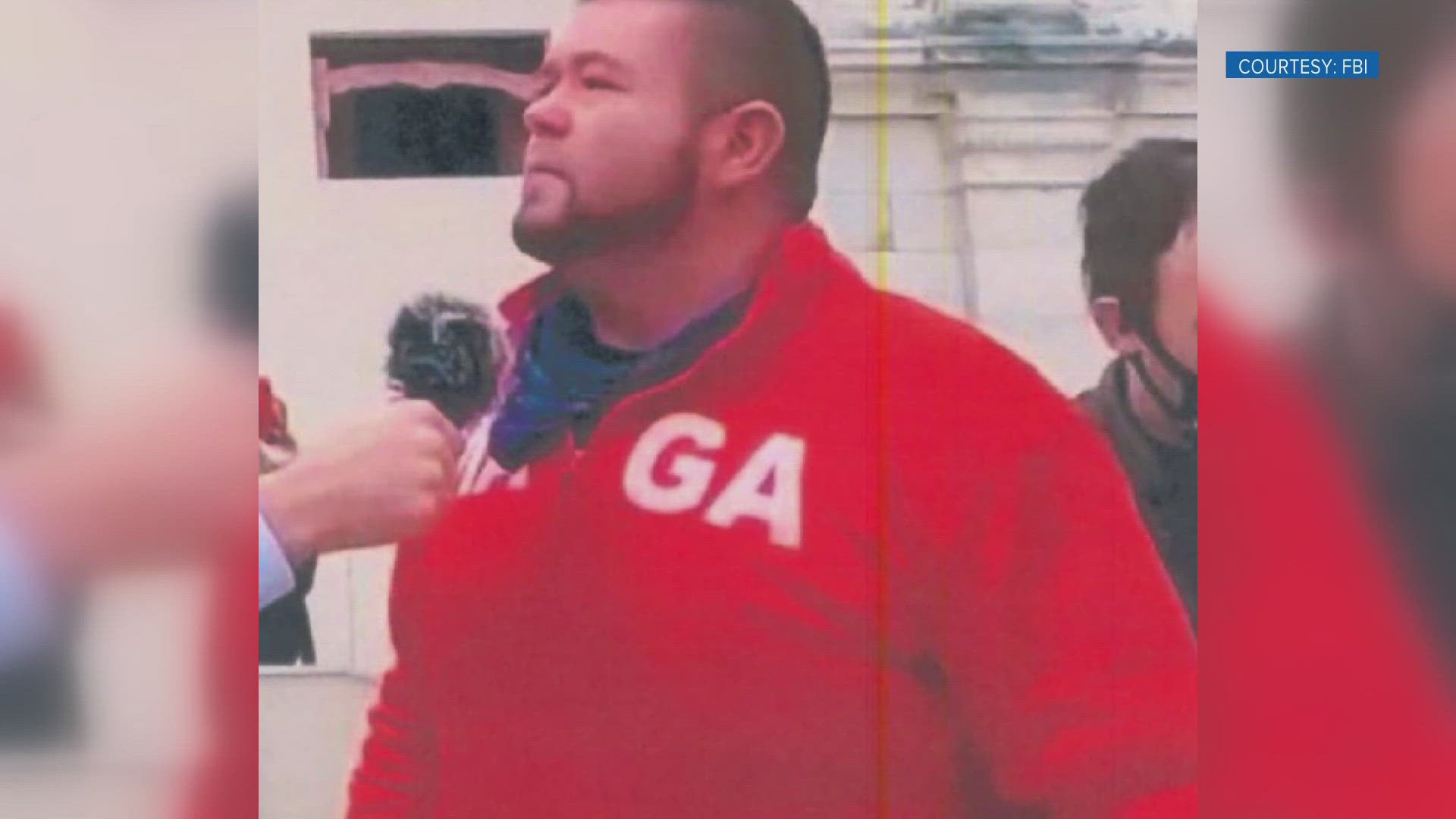The Pennsylvania man accused in a series of bank holdups and extortions that targeted executives and their families claims his arrest - was unconstitutional.
44-year-old Michael Benanti appeared in federal court Thursday, where his attorneys argued several motions before U.S. Magistrate Judge C. Clifford Shirley.
Benanti faces 23 counts in a federal indictment, which include weapons and kidnapping charges.
Federal prosecutors say Benanti and co-defendant Brian Witham, 46, committed three East Tennessee bank robberies that started by taking families hostage.
On April 28, investigators say, the two men took the family of an employee of the Oak Ridge branch of the Y-12 Federal Credit Union hostage, and tried to force him to steal money from the credit union. On July 7, the two men are accused of breaking into the West Knoxville home of a SmartBank executive and holding his wife and baby at gunpoint while forcing him to withdraw cash from the bank. The indictments also allege the two pulled the same scheme on October 21, in Elizabethton, Tenn., where they forced an employee of the Northeast Community Credit Union and her young son to accompany them while robbing the bank.
Witham has pleaded guilty and could testify against Benanti, whose trial is set to begin Nov. 7.
Benanti, 45, of Lake Harmony, Penn., and Witham, of Waterville, Maine, were arrested in late November in North Carolina, following a vehicle pursuit.
Benanti claims that arrest violated his Fourth Amendment rights, arguing authorities didn't have the required probable cause.
Federal prosecutors say authorities did have probable cause to arrest Benanti.
David Lewen Jr. is lead counsel for the United States. He and his co-counsel Steve Cook are with the U.S. Attorney's Office for the Eastern District of Tennessee.
At Thursday's motion hearing, they used evidence and witnesses to try and tie Benanti to a North Carolina car chase in early September, as well as the three bank robberies.
Prosecutors called two witnesses.
First to take the stand was the man who arrested Benanti, trooper Greg Reynolds, with the North Carolina State Highway Patrol.
As the court watched dramatic dash camera video from the Sept. 3 chase, Reynolds - who was not directly involved in that incident - explained the scene. Two other troopers attempted to pull over a dark Ford Edge SUV, as it sped westbound on I-40, near the Tennessee state line. The SUV struck two different vehicles before crashing with a third. That's when the driver and a passenger got out of the Ford Edge and ran into the woods, where troopers decided not to pursue them.
Reynolds described the passenger as a heavyset white man with a balding spot on the back of his head and the driver as a more slender white male. Each man was carrying a dark duffel bag. Reynolds said he gleaned that information both from interviewing the two troopers who had been involved in the chase and from watching the dash cam videos multiple times.
The suspects' abandoned vehicle turned out to be stolen, with separate stolen license plates. They left a GPS unit in the vehicle, which officials used to harvest additional evidence.
The court also saw video of the Nov. 25 chase in which Benanti and Witham were ultimately arrested. Reynolds was directly involved in this pursuit, along with two other troopers.
In the video from Reynolds' dash cam, the defendants' vehicle - a grey Nissan Pathfinder - tried evading the troopers. This incident happened heading eastbound on I-26, in Buncombe County, near Asheville, N.C.
The vehicle eventually pulled over, and the passenger - a heavyset white male with a balding spot on the back of his head - got out of the vehicle, holding a black bag. The driver sped off and one of the troopers pursued.
The video shows Reynolds demanding Benanti drop the bag, raise his hands above his head and drop to the ground, which the man did. Reynolds then handcuffed and arrested him.
When the Nov. 25 vehicle chase was first initiated, authorities knew two men believed to be involved in the three East Tennessee bank robberies and Sept. 3 pursuit were traveling in a car with stolen tags.
Benanti's defense attorney Robert Kurtz argued that at the time of his client's arrest, authorities had no concrete evidence linking Benanti to any crime.
Kurtz claimed that being in possession of stolen tags is a crime that should have resulted in an arrest of just the driver - not the passenger as well. He also said suspect descriptions in the other crimes - as vague as "white male" and as specific as "heavyset white male with balding spot on the back of his head" - were not specific enough to implicate his client.
Both Reynolds and the prosecution's other witness - FBI supervisory special agent Jeff Blanton - said multiple law enforcement agencies' collective knowledge - in addition to the suspect descriptions - implicated Benanti.
The defense pointed out one of the women held hostage in one of the bank robberies said in her official statement that the pair who held her family consisted of one white man and one black man. Kurtz argued that discrepancy further highlights the lack of a connection between his client and the crimes.
The prosecution argued that enough similarities exist between the suspects and details of the different incidents that they are confident Benanti is the man responsible for all.
Both Reynolds and Blanton, for example, testified it was highly unusual for a suspect to flee a vehicle with a bag in hand, and yet that was a common element in both the Sept. 3 and Nov. 25 chases.
Judge Shirley took under advisement all of the information presented Thursday and will write a report and recommendation, likely within a month or so. He will turn that over to Chief U.S. District Judge Thomas Varlan.
Whichever side does not receive the favor of the Shirley's recommendation may appeal to Varlan.



